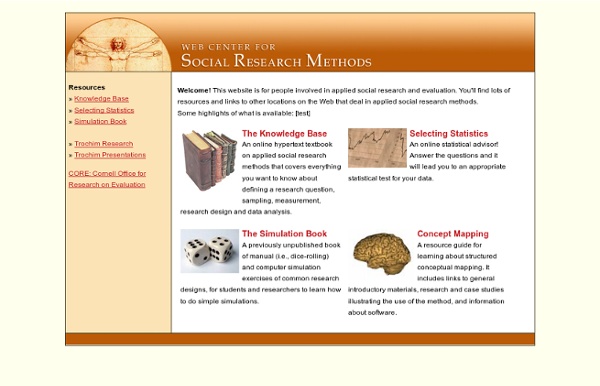



Social Science Research Network (SSRN) Home Page Research Impact What is impact? The Research Excellence Framework defines impact as: "an effect on, change or benefit to the economy, society, culture, public policy or services, health, the environment or quality of life, beyond academia. Impact includes, but is not limited to, an effect on, change or benefit to: The activity, attitude, awareness, behaviour, capacity, opportunity, performance, policy, practice, process or understanding Of an audience, beneficiary, community, constituency, organisation or individuals In any geographical location whether locally, regionally, nationally or internationally Impact includes the reduction or prevention of harm, risk, cost or other negative effects." However, impact should also be understood in a broader sense as encompassing all of the public engagement, dissemination, and communication activities that aim to bring research done at the University to a wider, non-academic audience. On these pages you will find information about: Impact and the 2014 REF
Extracting audio from visual information Researchers at MIT, Microsoft, and Adobe have developed an algorithm that can reconstruct an audio signal by analyzing minute vibrations of objects depicted in video. In one set of experiments, they were able to recover intelligible speech from the vibrations of a potato-chip bag photographed from 15 feet away through soundproof glass. In other experiments, they extracted useful audio signals from videos of aluminum foil, the surface of a glass of water, and even the leaves of a potted plant. “When sound hits an object, it causes the object to vibrate,” says Abe Davis, a graduate student in electrical engineering and computer science at MIT and first author on the new paper. Joining Davis on the Siggraph paper are Frédo Durand and Bill Freeman, both MIT professors of computer science and engineering; Neal Wadhwa, a graduate student in Freeman’s group; Michael Rubinstein of Microsoft Research, who did his PhD with Freeman; and Gautham Mysore of Adobe Research. Commodity hardware
Bağımsız Sosyal Bilimciler Policy Press Home Page 6 Critical Thinking Skills You Need to Master Now Critical thinking skills are extremely important in developing a successful career. Have you heard that before? Chances are you’ve heard it many times, such as when you began applying for your first job or maybe when you were passed over for a promotion. Whenever it was, there is usually one problem. They never tell you what critical skills are, why you need them or how to get them! College students and young professionals alike are flooded with advice on why they need to develop these skills. In an effort to help you make sense of it all and finally get some answers, I broke down the six core critical thinking skills you need for your career to help you both understand why you need them and how you can develop them. Identifying a list of skills critical to your professional career is not as easy as it may seem. Skill #1: Interpretation Throughout your career you will be presented with a variety of information in many different types of situations. Skill #2: Analysis Skill #3: Inference
International Network for Social Network Analysis 12 Most Embeddable Social Content Curation Tools Content curation is an important component of a digital marketer’s toolbox. Often just as important as the curation step is deciding how to share with your audience or customers, and a great way to do that is to embed that curated content within your blog or website. These tools can help you do just that. (And just to be fair, they’re in alphabetical order.) 1. 4sqmap If you have a Foursquare list that fits with content you want to showcase, use 4sqmap to embed the data visualization onto your website or blog. 2. Dialogfeed is probably the easiest way to curate content about a product or service from social streams and around the web. 3. Maybe there’s some rich content — photos, videos, audio or more — around the web that you would love to use. 4. Feedgrabbr relies on RSS feeds to mix, match and filter results that will leave you with what you want and an ability to embed them where you want. 5. 6. 7. If you love visualizations, Pearltrees is the tool for you. 8. 9. 10. 11. 12.
The Experience of interactive art: a curatorial study Abstract: Interactive art exists through the participation of its audience. There is an increasing awareness amongst artists, critics and curators that the audience's experience is of central importance to the understanding, creation and exhibition of interactive art. Because of its emphasis on experience and participation, as well as engagement with science and technology, interactive art offers challenges and opportunities for curatorial practice in museums and galleries.
Research on Money and Finance principles Research material | Affective Sciences On this page we propose research materials and tools that we are willing to share, free of charge, with qualified emotion researchers, irrespective of their discipline, for use in non-commercial research projects. We have developed, validated and published a number of instruments to test emotion recognition ability in different modalities. Many of these instruments are shared with qualified researchers. We have also developed a research corpus with many major emotions enacted by professional actors, using affect induction procedures – the Geneva Multimodal Emotion Portrayals (GEMEP), recorded on high quality video. Below we list materials and tools for emotion research in general, developed in the course of our earlier research, that are currently available for downloading. 1. GAQ English versionGAQ Version FrançaiseGAQ Deutsche Version 2. 3. This file provides over one hundred lexical labels for affective states and emotions in English, French, German, Italian, and Spanish. 4. 5. 6. 7.